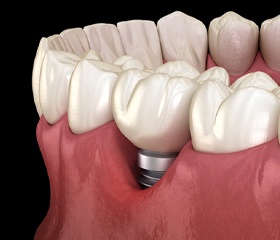The failure of dental implants can be attributed to various factors, including:
Poor Osseointegration: Osseointegration is the process by which the implant fuses with the surrounding bone. If this integration is not successful, it can lead to implant failure. Factors such as inadequate bone quality or quantity, poor surgical technique, or systemic health issues can affect osseointegration.
Infection: Infections in the surrounding tissues, known as peri-implantitis, can lead to inflammation and bone loss around the implant. This is often a result of poor oral hygiene, pre-existing periodontal disease, or inadequate maintenance of the implant.
Overloading: Putting excessive pressure on the implant, especially during the healing period, can lead to mechanical failure. This can happen if the patient doesn't follow postoperative care instructions or if the prosthetic components are not properly designed.
Medical Conditions: Certain medical conditions, such as uncontrolled diabetes or autoimmune disorders, can impact the body's ability to heal and integrate the implant successfully.
Poor Surgical Technique: The success of dental implants is highly dependent on the skill and precision of the oral surgeon. Errors in the surgical procedure, improper placement, or damage to surrounding structures can contribute to implant failure.
Implant Fracture: Though rare, implants themselves can fracture. This may occur due to manufacturing defects, excessive load, or other mechanical factors.
Smoking: Smoking has been linked to an increased risk of implant failure. It can affect healing and increase the likelihood of complications.
Insufficient Bone Quality or Quantity: If there isn't enough healthy bone at the implant site, it can compromise the stability and success of the implant. Bone grafting may be necessary in such cases.
It's important to note that advancements in technology, materials, and surgical techniques have significantly improved the success rate of dental implants. Regular follow-up care, good oral hygiene, and adherence to postoperative instructions can also contribute to the long-term success of dental implants. If you're considering dental implants or experiencing issues, it's crucial to consult with your dentist or oral surgeon for personalized advice.
Dental implant failure can happen at any time. Early failure occurs shortly after the initial placement surgery, while late failure may happen months, years, or even decades later.
Symptoms of both types of dental implant failure can include things like:

As soon as you begin to notice that something is not right with your dental implants, call our practice. The sooner you seek treatment, the more likely it is that we will be able to help you without extensive or invasive procedures. When you come in for your appointment, we will perform a thorough examination and strive to figure out what is causing the problem. Then, we will recommend a treatment plan
.For More Details Please Contact Us at +917836983698, 935533395
Email us- [email protected]
| Tags: | #Dental Implant Specialist in KarolBagh, #Dental Implant Specialist in Patel Nagar, #Dental Implant specialist in Moti Nagar, #Dental Implant specialist in Kamla Nagar |